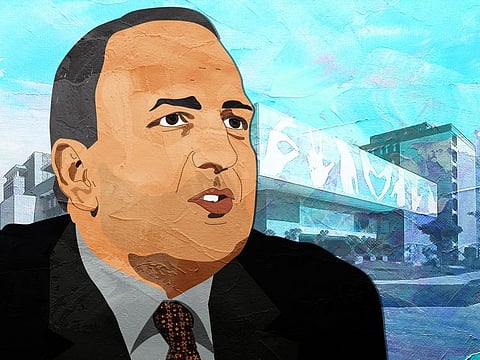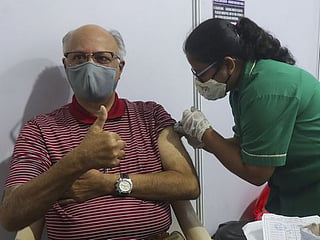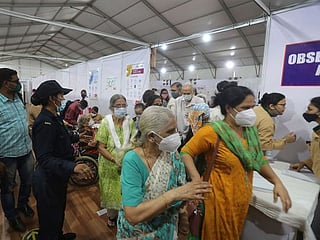Pratap Bhanu Mehta: Why India’s top public intellectual resigned
Mehta’s exit from Ashoka University only highlights the hollowness of academic freedom

India’s reputation as a democracy took another big hit this week with the resignation of scholar and commentator Pratap Bhanu Mehta from the prestigious liberal arts institution, Ashoka University.
After a meeting with two of the University’s founders, Mehta, a strong critic of the BJP government at the centre, sent in his resignation and said “my public writing in support of a politics that tries to honour constitutional values of freedom and equal respect for all citizens, is perceived to carry risks for the university.” He further wrote, “A liberal university will need a liberal political and social context to flourish.”
A day later, eminent economist and former Chief Economic Advisor, Arvind Subramanian also resigned as a professor from Ashoka, saying that Mehta’s exit shows that the university even “with its private status and backing by private capital” can no longer provide a space for academic expression and freedom.
'Lapses in institutional processes'
Ashoka University in a joint statement with Mehta and Subramanian has acknowledged “lapses in institutional processes”. Mehta himself has written to students urging them not to press for his return saying “the underlying circumstances that led to the resignation will not change for the foreseeable future”.
What this episode has shown is that an even an institution that is privately run, with plenty of private capital, by many well known names, succumbed to political pressure and completely crawled.
Well known economist and former Reserve Bank governor Raghuram Rajan summed up the crisis for Ashoka, saying “free speech is the soul of a great University. By compromising on it, the founders have bartered away its soul.”
Mehta’s resignation and the subsequent fallout only highlights the hollowness of academic freedom in India and the fate that awaits those critical of the current regime.
The BJP government has been openly hostile to universities and institutions that have encouraged free debate even on contentious issues, such as Jawaharlal Nehru University in Delhi.
Stranglehold on public institutions
It is no secret that the BJP-led government is thin skinned when it comes to criticism, that dissent and opposition are seen as treason. Over the last few years they have not only established a stranglehold on public institutions but also hold sway over many private entities, as the Ashoka University episode has publicly demonstrated.
Look at the media. Many journalists critical of the government have found themselves pushed out of their jobs as their organisations showed no spine in standing up to political pressure. Faye D Souza had a popular prime time show on the ‘Mirror Now’ channel before she stepped down rather abruptly in 2019. Her shows were scathing in their criticism of government policies.
In 2018, three leading journalists- Milind Kandekar, Punya Prasun Bajpai and Abhisar Sharma- were forced to step down from ABP news, reportedly under pressure from the government.
Last year, during the border crisis with China, the government turned it’s anger to India’s largest news agency, PTI, run by a trust of newspapers, for an interview PTI did with the Chinese ambassador. The government’s broadcasting network, Prasar Bharati, threatened to cut all links with it. Some months later, they followed through with the threat and cancelled their subscription.
Some years ago, veteran journalist Bobby Ghosh was forced out of the top editorial job at the Hindustan Times reportedly after the government objected to the newspaper’s “hate tracker” started by him to record hate crimes in the country especially against minorities.
Bollywood celebrities who have dared to criticise the ruling dispensation, have found government agencies like the Income Tax department and the Narcotics Bureau at their doorstep. Deepika Padukone, Anurag Kashyap, Taapsee Pannu have all been glaring examples of this.
An illiberal democracy?
All of this is partly why India’s democracy ratings have fallen in several world rankings. Foreign Minister Jaishankar is clearly putting on his political hat as he dismisses these ratings as western “hypocrisy” by “self-appointed custodians of the world who find it very difficult to stomach that somebody in India is not looking for their approval”.
He is right about the hypocrisy, but that doesn’t take away from the facts facing India’s reality and our slide into becoming an illiberal democracy.
It is true India has free and fair elections, but that is not the only measure of a true democracy. Human rights are universal, there are no “alternative facts” here. It is also not true that India doesn’t care about what the world thinks. We very much do.
A government that truly did not care about what the world thinks would not highlight even the positives like ease of doing business rankings or IMF projections for the economy. As I have argued in a previous column, India’s democratic credentials are it’s biggest asset.
Only this week, ahead of the US Defence Secretary’s visit to India, a top US Senator who heads the powerful Senate Foreign relations committee, Robert Menendez, wrote about India’s lowered ranking as a democracy citing the handling of the farmer protests, “rising anti-Muslim sentiment and related government actions like the Citizenship Amendment Act, the suppression of political dialogue and arrest of political opponents following the abrogation of Article 370 in Kashmir, and the use of sedition laws to persecute political opponents”.
Turfing out Pratap Bhanu Mehta is another sad chapter in this saga which has also reflected poorly on an institution like Ashoka which claimed to be a bastion of liberal values.
Whether it is the media or academic institutions, they can’t truly be free until they stop depending on the government for advertising, for accommodation, and concessional land. May be that is where they need to make a beginning and cut this umbilical cord of dependency









